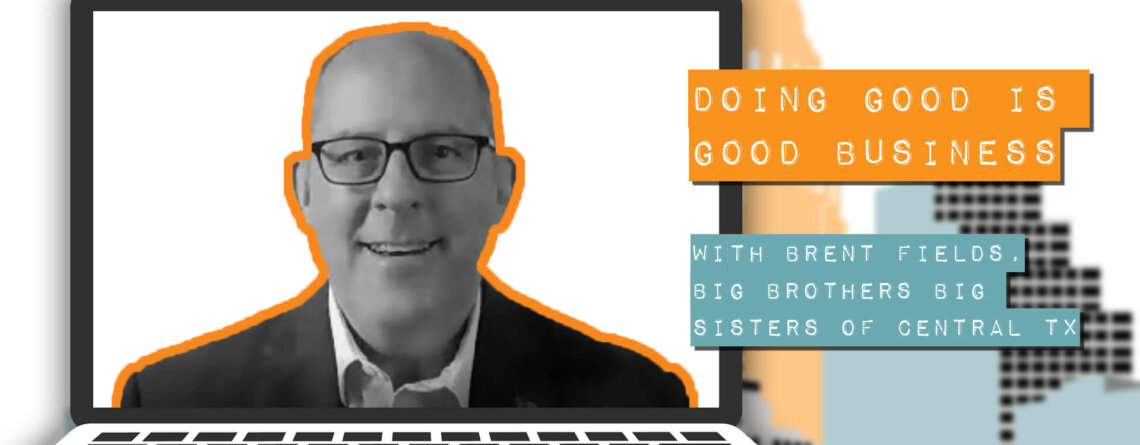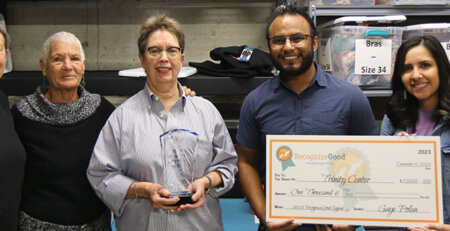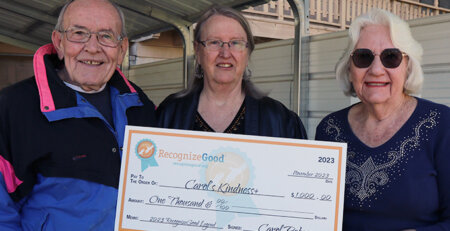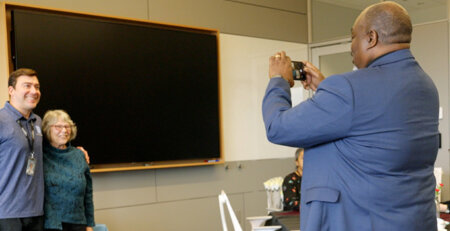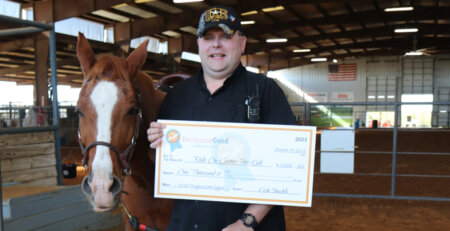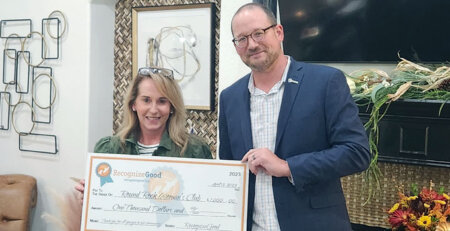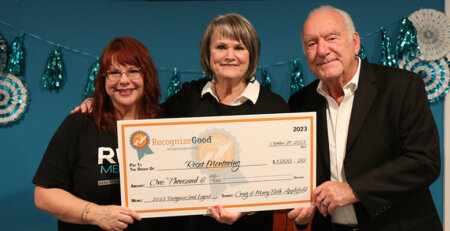Right Thing = Good Business w/ Brent Fields, Big Brothers Big Sisters of Central Texas
RecognizeGood: Your student examiners, Brent, came away raving for sure. One of the biggest things that they came away with, was they quoted you, “it actually helps you sleep better at night to know that you’re not just helping kids, but you’re helping kids in the right way.” What does it mean to you to not just help kids but help them in the right way?
Brent Fields: I often mention a quote from Potter Stewart, who said ethics is knowing the difference between what you have a right to do and what is right to do. Or, as Spike Lee said, it may be even better – just do the right thing. At Big Brothers Big Sisters, we do believe strongly in getting it right and in terms of our professional work life that has to do with staff behavior, leadership decisions, organizational climate, our accountability to the community and our stakeholders.
I think our mission, our values, our policies, and our culture are all aligned with that goal in mind of getting it right because our clients, our staff and the community deserve not only for us to do good work, but to do it really well.
RecognizeGood: That’s something that it is common in award honorees, but not necessarily common overall. Is there anything that you’re particularly proud of about the Central Texas chapter of BBBS?
Brent: A couple things come to mind in terms of how ethics shows up for us in in this agency. One of the most obvious intangibles is our building itself, our new headquarters that we built in East Austin a few years ago – it’s very intentionally an environmentally friendly building. It’s a LEED certified building that practices good stewardship of our environment. It’s very accessible and user friendly and we knew that even the facility that we show up in every day contributes to that prioritization of doing things right and doing it in the right way. One of our core values is excellence and we take that really seriously in terms of how we do our work, how we hold each other accountable.
Even in our performance management behaviors, whether it’s regular one-on-ones with staff members throughout the year, or all of our managers getting a 360 evaluation annually by all of the staff. Employee engagement surveys are done every year and those are reported to the full board. These are all ways that we say it’s important how we show up at work, not just the work we do, but who we are and how we behave and how we interact with each other. I think that’s something unique that I’m really proud of about our agency.
RecognizeGood: The two-way feedback and some of the regular feedback loops that y’all have implemented seem to be above and beyond. What’s the ROI? You’re making an investment of time, talent and treasure there to go that extra step, so what does that bring back to you as an organization?
I’ll be the first to say that ensuring ethics in business is complicated. It’s labor intensive because it requires thought and intention and effort, but it matters, and it’s worth the effort, and it really is good for business.
I think one of the tangible ways that we’ve seen the fruition of that is we spent time and effort planning and organizing ourselves around doing things right, and I think it’s one of the reasons we’ve won recent awards, like one of Austin’s Best Places to Work.
That pays off in our ability to attract and retain good talent, which is critical to our livelihood. I also think it pays off in terms of when you have the right people in the right place doing the right job in the right way. Everybody wins. Our donors win. They get a good return on their investment because we’re delivering on our mission. We’re being good stewards of that investment, but our staff win because they’re in an environment where they want to show up and be their best self and do their best work.
RecognizeGood: Without getting into the specifics, there’s one situation that you described to the students about turning down a partnership opportunity that would have benefited the organization financially, but it wasn’t a value aligned fit. I’ve got to think that in nonprofit that’s hard to do sometimes. What guides that decision for you?
Brent: Any nonprofit is constantly in search of funding to keep the mission alive and moving forward and because of that, it creates this very unintentional natural temptation to chase any funding.
One of the things that I’m most proud of at our agency is the discipline that we’ve developed over the years with regards to what we say no to. Not every grant is right for us. Not every corporate partnership is right for us, not because that engagement is ill intended by the other party, but if it’s not aligned with our mission, if it takes us all focus, if it creates work that puts our capacity and our sustainability in tilt mode, then we’re ultimately creating liability.
I think we’ve executed a lot of very disciplined commitment to not just seek all the help we can get, but know when it is not the right help for us.
